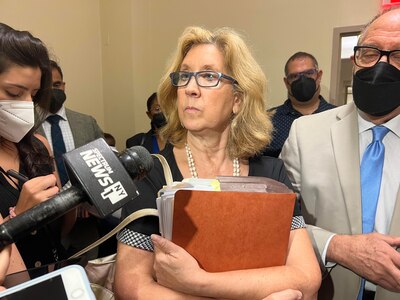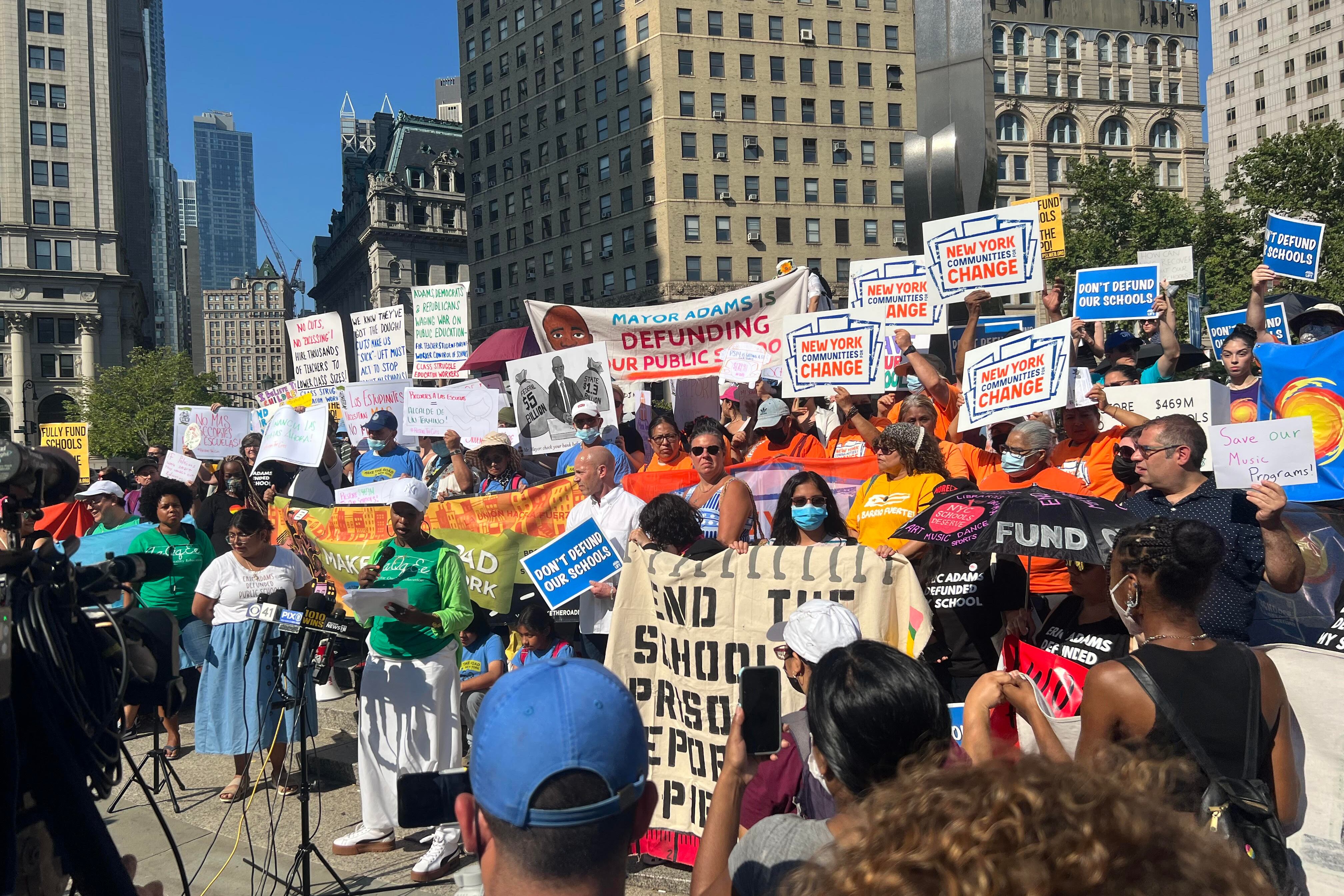New York City did not follow the proper procedure when approving the roughly $31 billion budget for the education department, a Manhattan judge said Thursday, potentially setting up the City Council to revote on funding for the nation’s largest public school system.
While an official court order is not expected to be issued until Friday, Judge Lyle Frank indicated that he will side with the two teachers and two parents who filed a lawsuit last month, which sought to invalidate the education department budget and force the City Council to take another vote.
The lawsuit claimed the city did not follow the proper protocols before the council voted on the final budget, which included hundreds of millions in cuts to city schools. Frank agreed, arguing the city didn’t have a good reason when it used an “emergency declaration” in May to bypass the rules set out in state education law.
“The emergency declaration changes the law — you really should have a good reason,” Frank said. “It really should be because of COVID, because of something.”
Thursday’s hearing was the latest in a stunning pushback against Mayor Eric Adams’ $215 million cut to city schools based on declining enrollment projections. (City Comptroller Brad Lander estimated the cuts were closer to $370 million.) City schools have lost about 9.5% of K-12 students since the pandemic started and are expected to lose about 30,000 more students this upcoming school year.
Though the City Council overwhelmingly approved the budget, many council members apologized for their vote after public outcry and are pushing the Adams administration to restore those dollars. The administration is phasing in the cuts over two years, using some stimulus dollars to soften the blow, and argues that cuts are necessary now in order to avoid even sharper slashes if enrollment continues to fall.
The lawsuit seeks to fund schools at last year’s levels until the City Council votes again. That would mean funding boosts for 77% of schools but cuts for the rest, according to an analysis from the comptroller’s office. Laura Barbieri, an attorney representing the plaintiffs, said her team could propose language for the judge’s forthcoming order that prevents any schools from seeing funding cuts.

Jeffrey Dantowitz, an attorney for the city, argued that reverting to last year’s funding levels — which were about $1 billion higher, buoyed by stimulus funding — “would exact a harm” on the city because the financial picture is different every year.
School budgets were already in limbo as Frank had issued a temporary order on July 22 barring the city from cutting funding from schools. That order remains in place, and while it may have affected principals’ ability to plan, the city threw another curveball this week, releasing some funding to schools that it had previously held back because of this lawsuit.
“Students, teachers, and parents need finalized budgets to ensure they are on track for a smooth opening next month,” Adams said in a statement. “We hope the court will recognize that an entirely new budget process a month from the start of the school year will only bring further uncertainty.”
The judge wants to suspend only the education department portion of the budget, rather than the city’s entire budget. He suggested that he wants to allow city lawmakers to decide the next steps.
Frank’s decision hinged on a narrow part of state education law.
The education budget must first be approved by the Panel for Educational Policy, or PEP — a largely mayoral appointed board — then move to the City Council as it considers the full city budget. However, as his predecessors had done, schools Chancellor David Banks issued an “emergency declaration” at the end of May, about a month before the deadline for passing the city budget, allowing the education department to send the budget to the council without the panel’s approval. His declaration said that there wasn’t enough time for the panel to vote and hold a required public hearing before the July 1 deadline for city lawmakers to pass the budget.
The judge seemed to agree with the lawsuit’s argument that Banks didn’t give a sound reason for issuing that declaration.
“I know it’s done all the time, but it’s called an ‘emergency declaration’ — it really should be an emergency, not boilerplate language,” Frank told the court, adding that the city could have found time to hold a panel vote if it wanted.
Dantowitz argued that it’s not possible to “divorce one part of the budget from the rest of it.” He also pointed out that the PEP approved the budget when they eventually voted in late June, as required by law, so there’s no reason to believe that the outcome would have been different.
Paul Trust, one of the plaintiffs, was a music teacher at Brooklyn’s P.S. 39 but was excessed from his school due to budget cuts. That meant he was let go from his school but could remain on city payroll and search for another job in the system. His school saw more than $401,000 less than last summer for its budget to hire teachers and create programming, according to a Chalkbeat analysis.
“I feel that these cuts were unjust and that the ruling gives the City Council the chance to right a wrong that was done,” Trust said after the hearing.
Reema Amin is a reporter covering New York City schools with a focus on state policy and English language learners. Contact Reema at ramin@chalkbeat.org.







